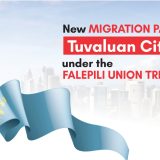The Australian government has strengthened its commitment to protecting migrant workers through the Migration Amendment (Strengthening Employer Compliance) Act 2024. This amendment to the Migration Act 1958 introduces new laws specifically designed to address and prevent the exploitation of migrant workers. These laws, effective from 1 July 2024, aim to deter employers and others in the labor chain from exploiting individuals based on their migration status, ensuring a fairer and more equitable workplace for all.
Objectives of the New Laws
The primary goals of these new laws are to:
- Reduce Temporary Migrant Worker Exploitation: Protecting vulnerable workers from being taken advantage of due to their migration status.
- Increase Employer Compliance: Ensuring that businesses adhere to ethical practices and legal standards in their treatment of migrant workers.
- Improve Workplace Justice Outcomes: Promoting fairness and justice in the workplace, ensuring that all workers are treated with dignity and respect.
Key Offences Under the New Laws
The new legislation introduces three significant work-related offences, making it illegal for employers, including sponsors, and labor-hire intermediaries to:
- Coerce or Pressure a Temporary Visa Holder: Employers cannot force or pressure temporary visa holders to breach any work-related visa conditions.
- Coerce or Pressure a Non-Citizen Without a Valid Visa: It is illegal to coerce or pressure individuals without valid visas into accepting or agreeing to work-related arrangements.
- Exploit Workers Based on Their Temporary Visa Status: Employers are prohibited from using a worker’s temporary visa status to exploit them in the workplace, whether through existing visa conditions or by leveraging their status in support of future visa applications.
Situations Covered by the Laws
The new laws address a wide range of exploitative practices that migrant workers might face, including:
- Underpayment: Employers cannot underpay migrant workers or deny them fair wages.
- Excessive Work Hours: Pressuring a migrant worker to work more hours than their visa conditions allow is prohibited.
- Visa Threats: Employers cannot threaten to cancel a worker’s visa as a means of control, as only the government has the authority to cancel visas.
- Passport Coercion: Employers cannot force migrant workers to hand over their passports or other important documents.
- Unwanted Sexual Acts: It is illegal to coerce migrant workers into engaging in unwanted sexual acts.
- Inadequate Living Conditions: Employers cannot pressure migrant workers to accept poor housing, inadequate meals, or lack of access to essential services like running water and electricity.
Comprehensive Protection for All Migrant Workers
One of the most notable aspects of the new laws is the comprehensive protection they offer to all migrant workers, regardless of their visa status. This includes:
- Individuals with valid work visas.
- Those with expired visas.
- Workers operating in breach of their visa conditions.
This inclusive approach ensures that all migrant workers, regardless of their situation, are safeguarded against exploitation.
Reporting Exploitation
Migrant workers who experience exploitation or unfair treatment in the workplace can report these issues to:
- Fair Work Ombudsman: For concerns related to wages, hours, and general workplace conditions.
- Border Watch: For issues specifically related to migration status and visa conditions.
Reports can be made anonymously, ensuring that workers can speak out without fear of retaliation.
For more information on how to report workplace exploitation and to understand your rights, please visit the Fair Work Ombudsman or Border Watch websites.








